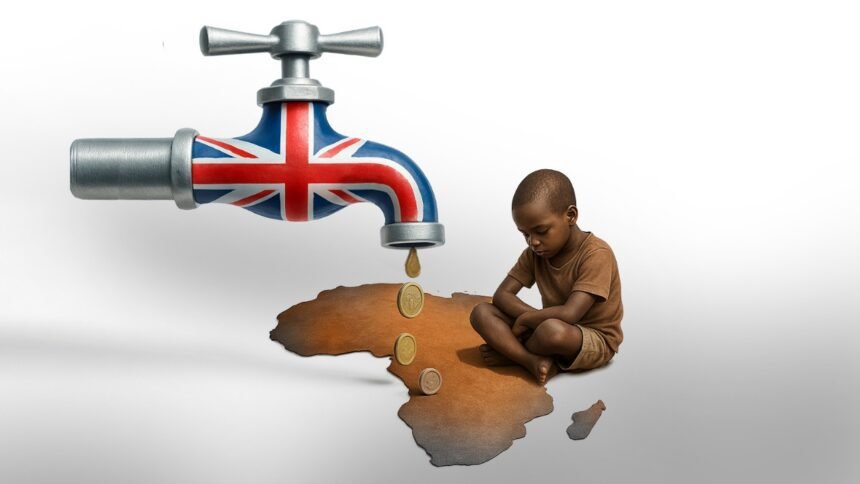It wasn’t supposed to be this way. When Britain announced its intention to “build global Britain” after Brexit, many expected a bolder, more generous approach to the world’s most vulnerable regions—especially Africa, a continent that has historically borne the scars and legacies of empire. Instead, what followed was a slash to foreign aid funding, a policy with shockwaves still reverberating across health clinics, classrooms, and food kitchens from the Horn of Africa to the Gulf of Guinea.
Now, with new reports surfacing, it’s clear the worst fears are being realized. The UK’s decision to cut aid from 0.5% to 0.3% of gross national income—quietly rolled out under the banner of “fiscal prudence”—has effectively gutted programs that sustained women and children across sub-Saharan Africa. Vital health services, maternal care, HIV treatment, sanitation projects, and emergency nutrition programs have all seen devastating rollbacks.
The impact isn’t abstract. In Ethiopia, British-supported health centers in remote areas—once a lifeline for expecting mothers and malnourished children—have closed or scaled down operations. A midwife in Amhara province, who requested anonymity, reported that “ambulances don’t come anymore. They used to bring mothers here at night. Now they bleed at home.”
In Nigeria, sexual and reproductive health programs, including those run by NGOs like Marie Stopes International, have had to halt operations in at least two states due to a sudden drying up of funds. Over 170,000 children across Africa were reportedly affected just last year by halted vaccinations, according to internal estimates cited by aid workers.
Let’s be blunt: this isn’t a matter of tightening belts. It’s a matter of life and death. British aid—while not a panacea—was a crucial piece in a much larger puzzle of African development. It provided leverage for local governments, civil society actors, and international partners to collaborate on systemic fixes. Without it, they’re left patching holes with duct tape.
The irony? These cuts were made by a government that loudly trumpeted its humanitarian commitments on the global stage—often from the podiums of G7 or COP meetings. But behind the glittering promises of climate resilience and vaccine equity lurks a troubling retreat from moral responsibility. The optics matter, especially when they are paired with Britain’s simultaneous increases in military expenditure and controversial arms deals.
Critics within the UK aren’t staying silent. Former Conservative international development secretary Andrew Mitchell called the decision a “strategic error of the highest order.” In Parliament, opposition MPs have demanded a return to the 0.7% aid commitment, a pledge enshrined in British law until quietly shelved in 2021.
On the African side, the backlash is growing. Kenyan economist Achieng Otieno describes the cuts as “structural abandonment,” saying they signal “that African lives are negotiable in the British budget.” Ugandan journalist Betty Ayot, writing in The Monitor, noted that “it feels like the old colonial bargain all over again—Africa matters only when convenient.”
But not all hope is lost. Some EU countries and philanthropic foundations are trying to fill the gaps, although most acknowledge they cannot fully replicate the scale or structure of UK assistance. Others argue this is a wake-up call for African states to develop stronger domestic health systems and reduce dependency on fluctuating donor policies. Still, such transitions take years, and children can’t afford to wait.
This isn’t about finger-pointing; it’s about priorities. And right now, a child in Malawi who can’t access malaria treatment because a British-funded clinic ran out of drugs isn’t thinking about geopolitics. Her mother isn’t pondering exchange rates or UK debt levels. They’re just asking: who will help us now?
One can only hope that in future Whitehall boardrooms, when the budget sheets are laid bare, someone will speak up for the voices that are often the quietest—and the farthest away.










